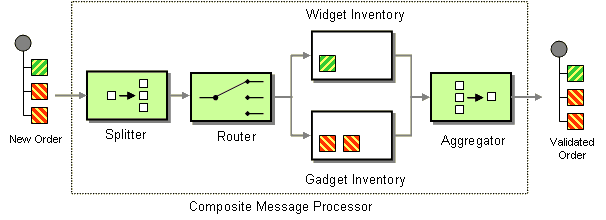In this article, I will cover How to Protect Your Private Keys Offline. Safeguarding your cryptocurrency assets from hacking, malware, or other online threats requires you to securely store your private keys.
Minimizing risks involves using offline methods like hardware wallets, paper wallets, and cold storage, allowing you to ensure that your assets remain under your control.
What is Private Keys?
A private key is a personal alphanumeric string of characters utilized to control a unit of cryptocurrency.

Just like a password provides one authority to control one’s assets, a private key allows a users to sign transactions and seek full command over their digital valuab es. Nobody can have access to your funds regardless of their knowledge of your wallet address, if they lack your private key.
The key must be stored in a safe and secure location because once someone has control over it, they can gain unfettered access to one’s cryptocurrency. If misplaced, one may lose valuable assets they possess forever.
How to Protect Your Private Keys

Here’s one of the ways you can effectively secure your private keys:
Employ a Hardware Wallet
A hardware wallet, such as Ledger or Trezor, guarantees the storage of your private keys offline. This decreases the risk of online attacks and makes it one of the safest options.

Have Various Copies
Private keys and recovery phrases should be documented and stored physically in different locations such as fireproof safes. Instead of digitally formatting them, print them to prevent potential hacking.
Use Encryption
When storing a backup file, especially digitally, it is prudent to apply encryption using trusted software as well as strong passwords.
Avoid Public Wi-Fi for Crypto Transactions
Utilizing the Internet to access your crypto wallet is best done through personal or exclusive networks so as to not expose private keys.
Enable Multi-Factor Authentication (MFA)
Where applicable, enable MFA for wallets or platforms that support it to add an additional layer of security.
Be cautious of Scams
Robots masquerading as humans will try their best to convince users into giving out their private keys, don’t let them. Avoid suspicious links and platforms you do not trust.
Other Place Where Protect Your Private Keys
Cryptosteel
Cryptosteel is an offline tool which offers protection for your private keys by engraving or assembling them on stainless steel plates.

One of its advantages in comparison to paper wallets and digital storage is its durability against fire, water, corrosion and other forms of physical damage.
This provides long lasting protection under extreme conditions. Its lack of electronic components ensures there are no digital breach risks which promises absolute security for critical information.
Why Protecting Private Keys Offline Matters
Reduces The Likelihood of Cyber Attacks: Keeping private keys in offline storage secures them from theft by hackers, malware, and phishing scams targeting online systems.
Lessens Accessibility Risks: The safest option for storing private keys is offline as it eliminates the possibility of theft via hacked exchanges or wallets.
Reduces Risks of Account Sharing: Storing a private key offline means you are less prone to losing it via online sharing or platform sharing.
Maintained Safety Over Time: The greatest safeguard for long term holders of cryptocurrency is offline protection because it mitigates the chances of a digital breach.
Common Mistakes to Avoid
Storing Keys Online
Private keys should never be stored in the cloud, email accounts, or any other online facilities. These places are dubious as far as intrusion and access control are concerned.
Taking Photos or Screenshots
Private keys should not be kept as images on phones or cameras. Photographs are subject to quantum leap law where they may be stolen at will.
Using Weak Passwords
Ensure that all passwords associated with offline storage are file-specific. Generic passwords are risky and can be a gateway to granting access to your key.
Private Key Sharing
Under no circumstances should anyone share private key even to known faces. The key reveals unlimited information to crypto assets under one owner’s name.
Failing to Backup Securely
Multiple secure backups of private keys are essential to mitigate risk of loss due to misplacement. The backups also need to be stored in different material places.
Tips for Long-Term Key Protection

Employ Several Copies: Make multiple secure copies of your private key and keep them in various locations such as a safety deposit box or fire-proof safe to mitigate the risks of loss or damage.
Encrypt Your Backups: Always encrypt your private key backups with strong passwords or passphrases before storing them to mitigate risks of physical theft.
Check the Recovery Procedures: Make it a routine to access and ensure your funds using various methods without initially revealing the key to other parties.
Use Multi-Signature Solutions: Use a multi-signature wallet that requires multiple keys to authorize a transaction for enhanced security so that the fraudster would not be able to steal your funds with only one key.
Think About Inheritance Arrangements: Make arrangements for appropriate transfers of your key in the event of an emergency or death, verifiably making sure that trusted family members or legal representatives have access to it in a secure manner.
Pros & Cons
Pros:
Greater Protection: Security cannot be compromised by threats like hacking, phishing, or malware since there is no internet connection.
Total Sovereignty: Through keeping your keys offline, you have complete sovereignty over your private keys.
Best For Long-term Holding: Large amounts of crypto assets can be safely held for a very long without any risk using cold storage methods.
No chance of Remote Access: The chance of unwanted transactions being done is significantly lesser since offline keys cannot be accessed remotely.
Cons:
Higher Chances of Losing Physical Backups: The private key becomes almost impossible to retrieve if paper or hardware wallets are lost.
It Can Be Quite Laborious: Accessing funds can require more effort, making it less ideal for quick transactions.
Vulnerability: Paper and hardware wallets are highly susceptible to theft or damage (fire or water).
Permanent Loss of Crypto Assets: If the offline storage device does not have appropriate backup systems, you stand the chance of permanently losing access to crypto assets.
Conclusion
To summarize, safeguarding your cryptocurrency values requires that your private keys be kept offline. Hardware wallets, paper wallets, and cold storage greatly diminish the risks succumbing to online threats.
However, online storage does pose risks pertaining to physical damage, theft, and loss which would require secure and organized backups. They’re your digital assets, and with proper offline storage measures, you’re their master.









